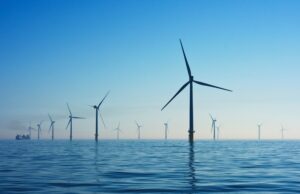Industry Giants Leading the Way to Greener Futures
Human-driven climate change is among the biggest challenges facing the world in the 21st century. It’s a problem that will require the contribution of all of society – from governments, to consumers, to businesses.
Certain industries, to be sure, stand out as having an important role to play.
Manufacturing
According to Our World in Data, around a quarter of the energy use that contributes to climate change comes as a result of industrial uses. A substantial chunk of this energy comes from the production of iron and steel, which requires the generation of high temperatures that aren’t feasible using entirely green methods.
Schnitzer Steel Industries has been recognized among the world’s most sustainable names, according to Canadian research firm Corporate Knights. Of course, this shouldn’t come as too much of a surprise: in the polluting industries, there is greater scope for improvements and efficiency savings.
Transport
Getting from place to place, typically, requires energy – and that means emissions. Despite this, we can be sure that some forms of transport are more polluting, per passenger mile. And the more people you can fit into a car, or a bus, or a plane, the more the environmental cost of the journey will be split.
Some cities in the UK boast more environmentally-friendly public transit systems. London is considered the greenest major city where transport is concerned, with Liverpool following just behind.
Private aviation
Flying a private jet is inherently polluting – but providers are making big claims about their offsetting performance and technological innovation, which will hopefully help to curb emissions in the future. Fleets are gradually becoming more sustainable, with the introduction of impressive jets like the Bombardier Global 6000.
Electric power
According to data provided by Electricity Info, which is an independent source of information about the energy industry, Bulb is the leading source of renewable energy. It allows customers to be entirely sure that the energy they’re using has been generated through wind, solar, or hydroelectricity.
Agriculture
 The food that we consume has a considerable impact on the natural world.
The food that we consume has a considerable impact on the natural world.
In the case of meat, the land needs to be used twice: once to grow the feed for the livestock, and again for the livestock itself.
There are a number of ways in which farming might be made a little bit greener.
These include crop diversification and rotation, recycling (with the help of composting and manure), and other technologies and data-led methods.
In Conclusion
The way that the world of business is currently set up is far from optimal. Undoubtedly, there are improvements we might make – and some of those improvements might not even be on the radar. What we can be reasonably sure of is that the clock is ticking!
